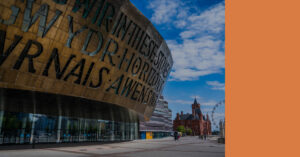At this point in the application process, the Admissions Tutors have a collection of numbers and letters and not much else. You may well wear your GCSE grades with pride and quote your UCAT scores in conversation, but chances are, there is a lot more to you as a candidate, and a person.
A good chunk of the personal statement should be dedicated to your medical interests, reading and anything you’ve done to support this further. Let’s take a look at why this is important.
Reflecting in your Personal Statement
Read the following extracts: which student sounds like the better choice?
STUDENT #1
“My inspiration for medicine came from my dad, who works as a consultant in Accident and Emergency for Addenbrookes Hospital in Cambridge.
He taught me about the challenges and rewards of studying medicine, and this is something I have learnt more about by reading the news and “This Is Going To Hurt” by Adam Kay.
I, therefore, want to study medicine because of all the good points I’ve read and because it matches my interests, but I am aware that there are downsides as well.
I look forward to experiencing these rewards and, because I am aware of the downsides, I will be able to navigate them during my medical school placements.”
STUDENT #2
“My inspiration for medicine came from my dad; I was able to gain an insight into the rewarding nature of medicine, such as the ability to support people in their most vulnerable states.
However, I also became aware of the challenges, such as the intense time pressures. From my A&E work experience, I was particularly interested in the imaging techniques used for different fractures. Exploring the historical radiology timeline, I could appreciate the rapid developments made in medicine.
In addition, entering the BIR radiology essay competition enabled me to explore future applications of radiology, such as in telemedicine.
The intersection between physics, medicine and technology is something I am excited to explore further in medical school.”
Which student do you know more about? Which student has a better insight? Which personal statement leads to effective interview questions?
The second student has included far more reflection, gone beneath the surface and effectively supported this with evidence. Hopefully, you can appreciate that, although the first student’s paragraph isn’t “bad”, it’s super generic and doesn’t really demonstrate any deeper thinking.
By discussing your interests/reading and reflecting on them, you can demonstrate your interest, insight and commitment. As a happy side benefit, it makes it easier to predict possible interview questions and prepare for them.

MEDICINE MASTERY BUNDLE
Achieve Medicine Mastery in all areas of your application, including the Personal Statement
Write an impressive Personal Statement with the help of our one-to-one tuition, in-depth resources, an intensive crash course and much more.
Personal Statement Crash Course
Personal Statement Crash Course
Need some extra guidance in your Personal Statement preparations?
Signing up to the Personal Statement Bundle means you’ll be guided by expert Medics who will help you write the perfect Personal Statement and provide unlimited redraft submissions.
Want to learn how to Write the Perfect Personal Statement? This bundle is the one for you…


Effectively communicate in your Personal Statement
So how do you effectively communicate your medical interests and wider reading? There are certainly some key tricks and, importantly, some common pitfalls to avoid. Let’s look in more detail.
Discussing medical interests
This can feature in several parts of your personal statement: the opener, complementing work experience, and dotted around to add evidence.
Question 1
Question 1 is all about your motivations for studying medicine, so this is a great place to discuss how your interest aligns with your reasons to study medicine. For example, here is a reworded version of my personal statement opener, that got me Cambridge, UCL, KCL and Leicester interviews:
“The growing antibiotic resistance issue can be majorly attributed to a lack of patient education. Historically, antibiotics were liberally used and the public did not heed warnings from the scientific community.
For me, this demonstrates the challenge and value of medicine; on one hand, we must have a robust understanding of science (such as the mechanism of S. aureus resistance) but on the other, we must effectively communicate this to a population of varied scientific literacy.”
In this opener, I invited discussion around microbiology, antibiotics, public health and medical education. Later in the statement, I reinforced this by discussing a book I read on MRSA and some experience at the Medical Research Council.
Medicine Interests
You can also use medical interests in later questions to continue your narrative from work experience, like the second student example above. You can then continue the story: what did you do/read to pursue this further and what did you learn? What were your reflections?
You may be interested in a particular speciality, and by all means discuss it: what insights do you have? Why this speciality? Any particular exciting/challenging reflections? Also, make sure to communicate an interest rather than a solid decision to pursue this speciality, and only this speciality – be open-minded!
Discussing medical interests can add an extra dimension when discussing other points, such as:
- Commitment and insight into the profession
- Extra-curriculars (maybe you joined or started a society?)
- Academic achievement (have you done an EPQ, essay competition or project that relates to your interest?)
In my personal statement, I was able to extend the conversation by discussing my EPQ (MRSA control in UK hospitals). It added an extra dimension and further evidence and ensured everything was related and neatly compiled.
Wider Reading
Wider reading is a great way to demonstrate interest and commitment, as well as invite conversation. However, there are some key points to remember- especially this golden nugget of truth:
With that said, do not lie, exaggerate, or include reading as a tick-box exercise. If wider reading is a chore and you’re doing it for the purposes of putting the book title in your personal statement, it’s best not to bother. When probed at interview, you won’t be able to offer much in the way of discussion and this will show – and potentially invalidate the rest of your personal statement!
Lying about reading a book not only demonstrates a lack of professionalism but can also be a sure-fire way to remove yourself from consideration. With so many applicants, any major flaws or red flags will make it easy to place you in the “no” pile.
Check out these Personal Statement Inspiration and Examples Articles:
Personal Statement FAQs
What books do you recommend reading?
The number one rule here is to read something that interests you, regardless of whether it’s a “common” book or not. Remember, common books (such as “The Man Who Mistook His Wife For A Hat”) will be read by many students, year after year. It isn’t original and doesn’t invite interesting discussion.
As long as the book is somewhat based in medicine, relates to your interests and invites discussion, it is fine to include.
How do I make the most of reading?
Treat your wider reading like you’re part of a book club (hey, you’re a prospective medical student, embrace the nerdiness). You want to write notes as you read, discussing anything that particularly interests, shocks or otherwise engages you. What were your impressions? Did it change your viewpoint? Could you empathise with what was said?
Also, see if you can draw some common themes from the book e.g., ethics, public health, challenges of medicine etc. Does the book topic relate to something else you’ve mentioned in your personal statement? This will enable you to link things together and provide evidence when discussing it.
I don’t like reading books, what do I do?
The first thing to remember is you don’t have to enjoy sitting in the library reading for pleasure. If a full book is too much, read any reputable article on an interesting topic, and maybe even watch some videos on it (providing it has an adequate level of scientific accuracy).
Anything that will stimulate reflection and deepen your interests will provide value.
Final thoughts
I hope that you can now see the why and how of discussing medical interests and wider reading in your personal statement. It’s a great way to flesh your character out, provide evidence for commitment and facilitate discussion at interview. This is especially true for Question 1, where UCAS outright suggests you speak about these things!
Now it’s just the when – right now! Use it to expand your medical horizons and make sure to keep a log of what you do to support your interests and your reflections from your reading.
Who knows, you may even enjoy the process!

MEDICINE MASTERY BUNDLE
Looking for Personal Statement support?
We’ll do you one better! The Medicine Mastery Bundle supports you through your Personal Statement, UCAT and Interview with 30+ hours of 1-1 tuition and a full suite of resources and features.
Personal Statement Work Book
Personal Statement Workbook
Are you feeling stuck with your Personal Statement?
Signing up to the Personal Statement Bundle means you’ll be guided by expert Medics who will help you write the perfect Personal Statement and provide unlimited redraft submissions.
Want to learn how to Write the Perfect Personal Statement? This bundle is the one for you…




